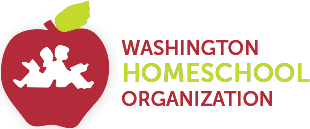[Jen note: What follows is another prime example of why understanding the difference between homeschooling and public-school-at-home programs is critical. It’s not that there’s anything wrong with these programs — they’re a great fit for many families for all sorts of reasons — but the difference is critically important.]
Email of the Day:
As the overseeing organization for WA State, I believe it is within your scope of responsibility to investigate the following information and then inform through the WHO.
See the following:
[What followed was from a website that contained dire warnings about vaccinations, our judicial system, Uncle Sam wanting your women, and sustainability (this one, pitting sustainable development against liberty). The article in question, however, was about Every Child Achieves Act of 2015 (S.1177) which would reauthorize No Child Left Behind.]
Answer:
In general, anything that includes this many capital letters, exclamation points, and loose language (“Communist Core”) should be taken with a salt-lick (not just a grain of salt).
S. 1177 retains Section 9506 of NCLB (20 U.S.C. § 7886). This language ensures that nothing in the Every Child Achieves Act will apply to homeschools or private schools that do not receive federal funds, thus protecting these private educational programs from any federal regulation or control. This is of the utmost importance to homeschoolers across the nation. This provision (as well as WA law, which specifically exempts homeschoolers from these things) has helped to protect homeschools from being forced to follow the Common Core, federal testing mandates, and other federal programs that have been pushed on public schools. In addition, this section prohibits state or local school districts from trying to force homeschools to follow local public school mandates.
But there’s a fundamental misunderstanding of homeschooling in this article:
“And homeschoolers think they are exempt from this agenda? They may have been up until a few years ago when computer programs such as former SecEd William Bennett’s K-12 did not exist. In 2015 K-12 and other home school virtual learning home school programs (virtual charters which are federally funded, with no elected boards) are being used across the nation by home schooled children. ”
Enrolling in a public school to attend a K-12 program simply is not homeschooling. WA law clearly defines homeschooling as “being provided by a parent, educating his or her child only.” It provides for parents, within the framework of the 11 subjects, to “be subject only to those minimum state laws and regulations which are necessary in ensuring that a sufficient basic educational opportunity is provided to the children receiving such instruction.”
Further, our law specifies that “all decisions relating to philosophy or doctrine, selection of books, teaching materials and curriculum, and methods, timing and place in the provision or evaluation of home-based instruction shall be the responsibility of the parent .”
This is why WHO emphasizes the distinction, codified in our law, between homeschooling and public-school-at-home: because they are different things with different implications for the families choosing them. The difference is important, because things like Every Child Achieves Act of 2015 (S.1177), which reauthorizes the NCLB law impacts those who are enrolled in public school programs, but not those who are homeschooling under WA law.
Warmly,
~Jen Garrison Stuber, WHO Board Advocacy Chair
